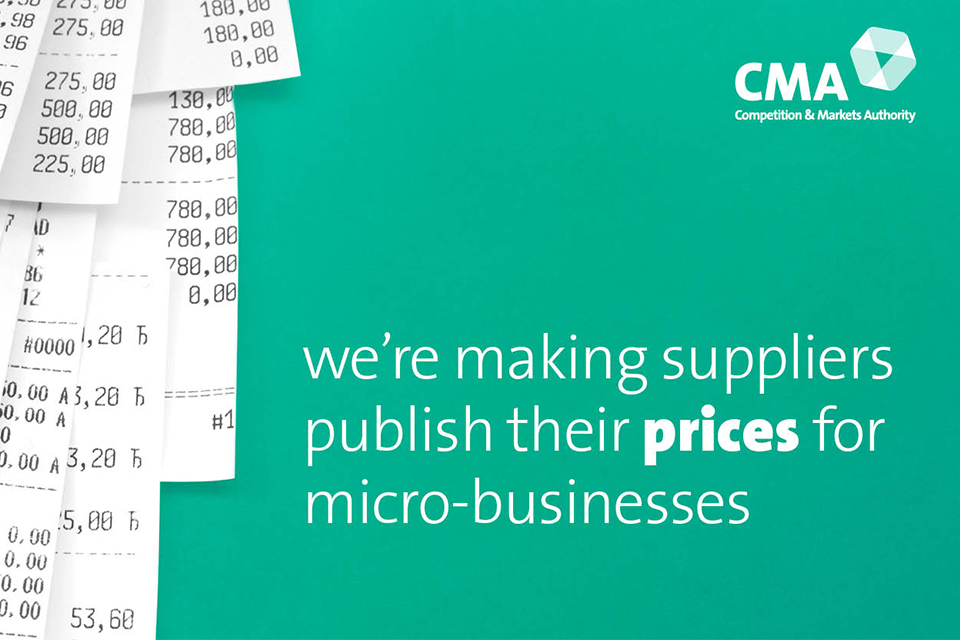Modernising the energy markets: benefits for microbusinesses
Published 24 June 2016

If you’re a microbusiness – for example, if you employ fewer than 10 people – the CMA is bringing in measures to help you pay less for your energy.

Suppliers will have to publish their prices
- At present many tariffs for microbusinesses are not published as they are negotiated between customer and supplier.
- Suppliers will now have to publish all prices they offer to microbusinesses so you can have a better idea of what you should be paying.
You won’t be locked into expensive rollover contracts
- If your existing contract with a supplier comes to an end, and you don’t actively renew it, your supplier will usually roll you on to a new contract. Some suppliers build in clauses to their contracts which can make them expensive and difficult to get out of.
- Suppliers will now be stopped from inserting termination fees and no-exit clauses for rollover periods.
- This means you won’t be penalised if you want to switch to a better deal after the initial period of your contract has lapsed. You’ll also get greater notice periods about when your contract is coming to an end.
You’ll be prompted to switch
- If your microbusiness has been on your supplier’s default tariff for at least 3 years you will be prompted to switch.
- Other suppliers will be able to write to you, telling you how much money you could save if you switched to them and making it easier for you to choose the best deal for you. You can find out more about how energy prompting will work at www.gov.uk.
- The prompting system will be closely controlled: you’ll be able to opt out and there will be no irritating telephone calls, texts or emails.
- Domestic customers will also benefit from switching prompts and other help: Modernising the energy market – benefits for users at home.
These changes will help microbusinesses get a better deal for their energy by increasing their ability to compare prices and switch.
Why is this important?
The CMA has carried out a review of the energy markets – and will implement remedies that will improve it for domestic and microbusiness customers.
The investigation found that in 2013, 45% of microbusinesses were on ‘default’ electricity tariffs and could be paying over £220 million a year more than they would in a fully competitive market.
Email: [email protected]
For more information see the energy market investigation case page.
These materials do not constitute legal advice and should not be relied upon as such.

